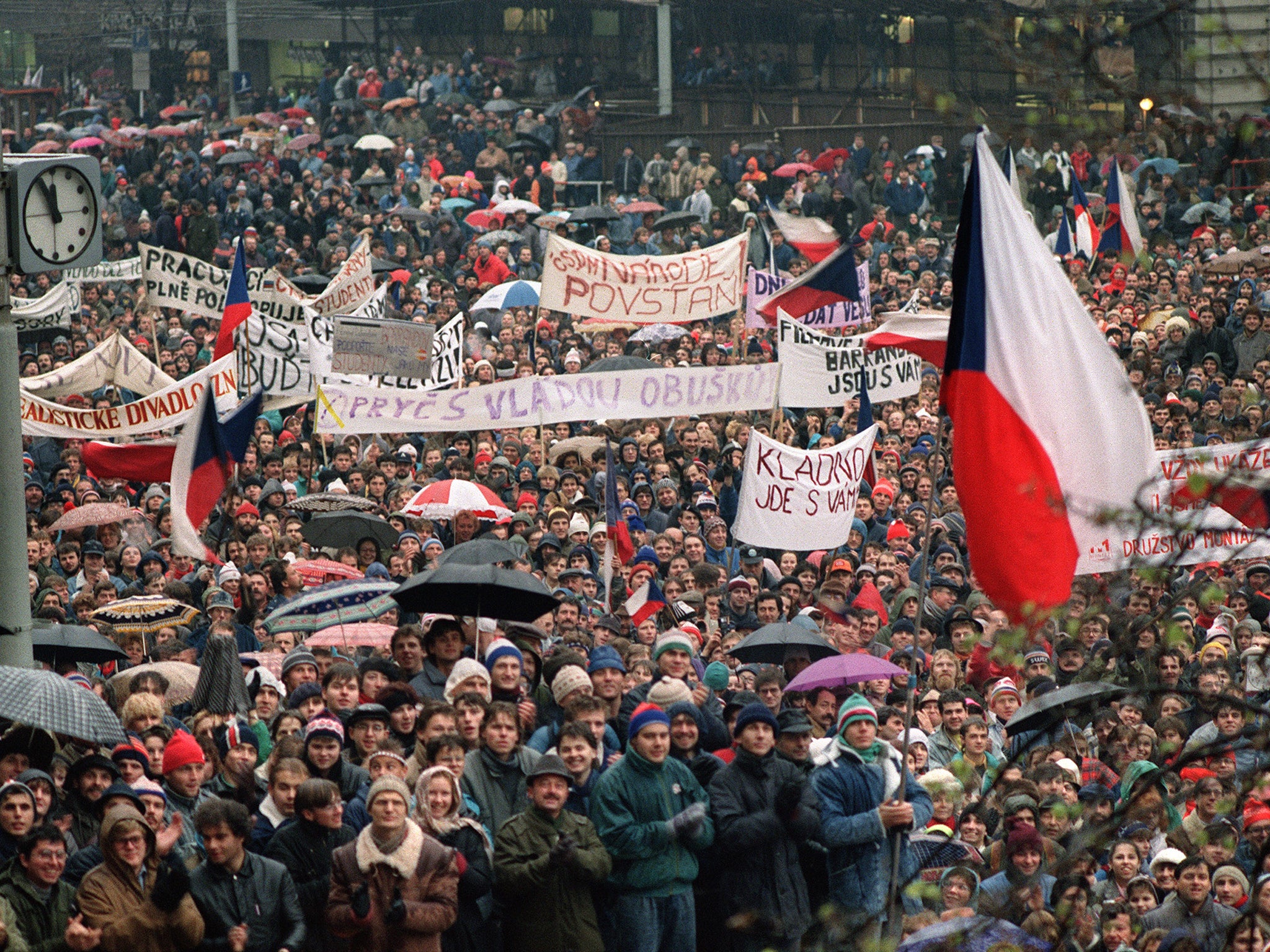Thirty years after the Velvet Revolution, its legacy still remains divisive in Prague
As celebrations occur across Europe to celebrate the fall of communism, at least 20 per cent of older Czechs want a return to the left-wing ideology. Mick O’Hare looks at why things remain so complicated

Leonid Brezhnev screwed me over twice,” bemoans Pavel Kamenicky. In 1968 Alexander Dubcek was attempting to reform communism in Czechoslovakia in what had become known as the Prague Spring. But Brezhnev, leader of the Soviet Union and he of the eponymous interventionist doctrine, decreed that it was necessary for his troops to intrude and “counteract forces hostile to socialism”. Kamenicky was a student in Prague at the time, sympathetic to Dubcek’s aims. Two decades later, Kamenicky, by this time 41, was among cheering crowds in Prague’s Wenceslas Square, celebrating the repudiation of that same Brezhnev Doctrine as the people of eastern Europe won freedom from Soviet-imposed communism. But unlike most of those around him 30 years ago this week, Kamenicky had his doubts.
“Back in ’68 I supported Dubcek. And we didn’t want to overthrow communism, we all believed in it,” he says. “We just wanted to reform it. Liberalise it. But that was too much for Brezhnev. He sent in the tanks.”
Subscribe to Independent Premium to bookmark this article
Want to bookmark your favourite articles and stories to read or reference later? Start your Independent Premium subscription today.
Join our commenting forum
Join thought-provoking conversations, follow other Independent readers and see their replies